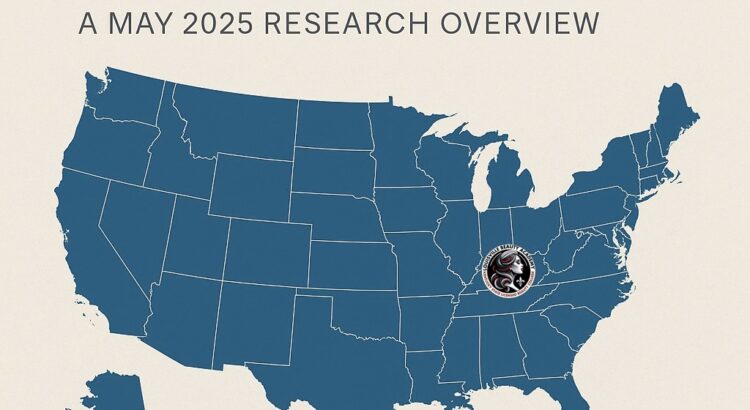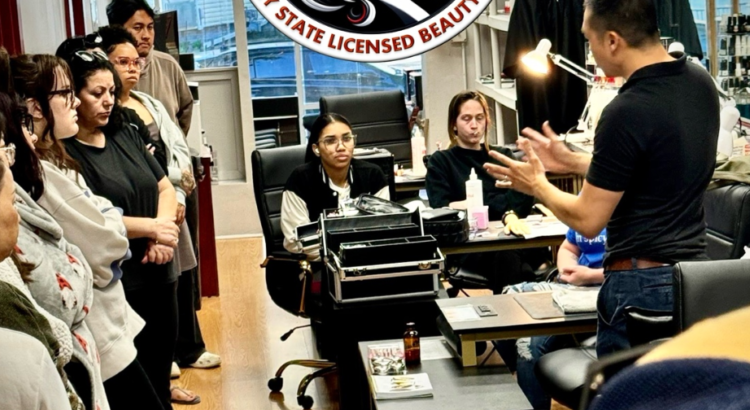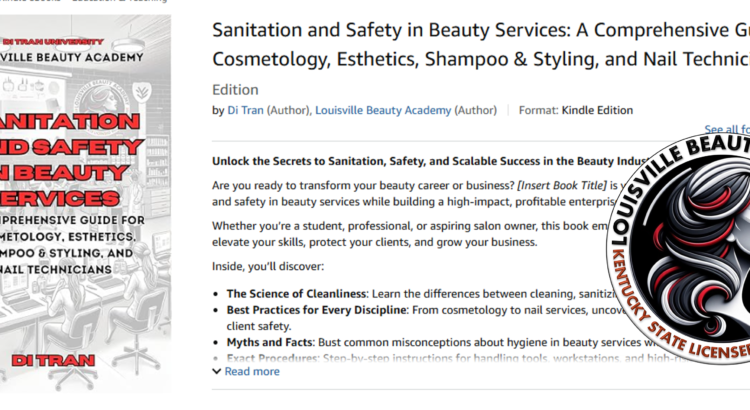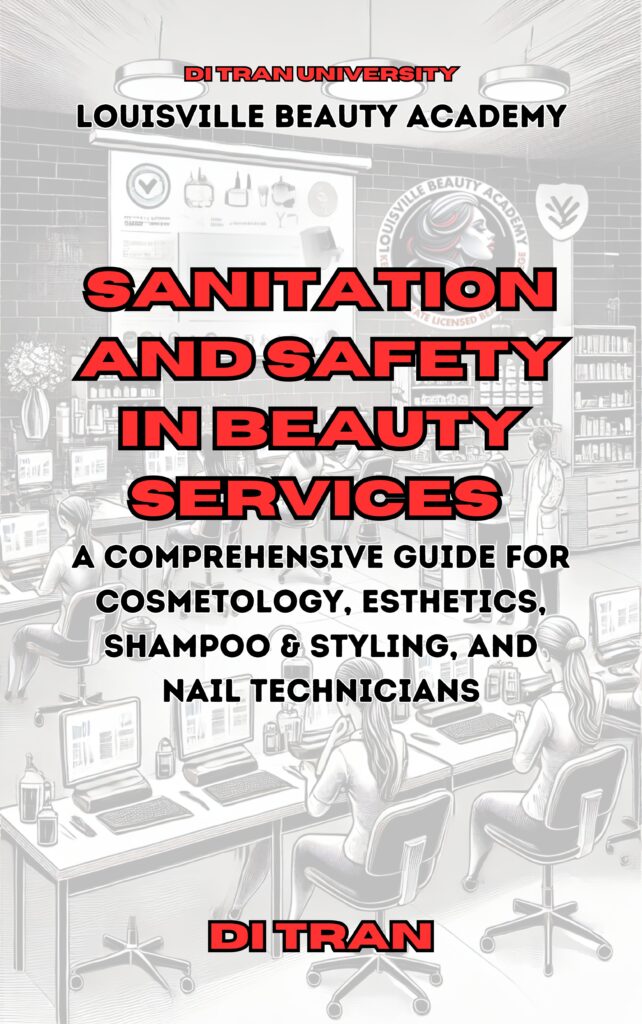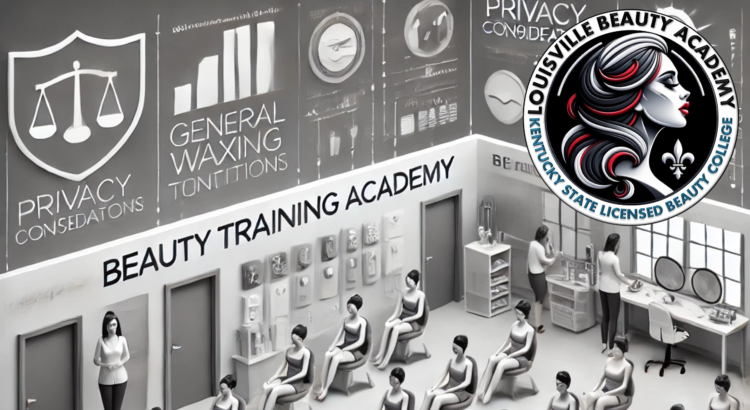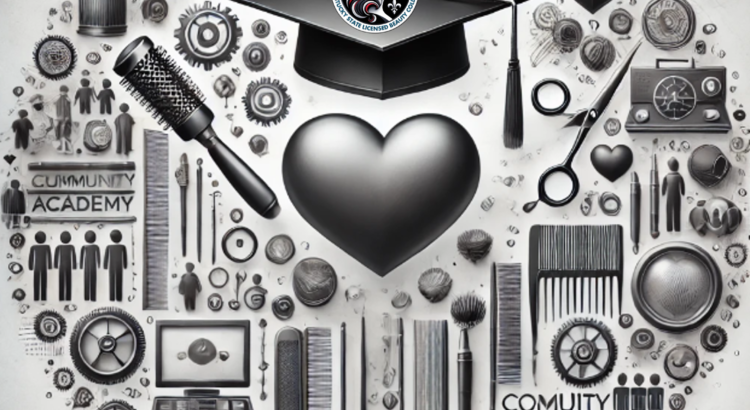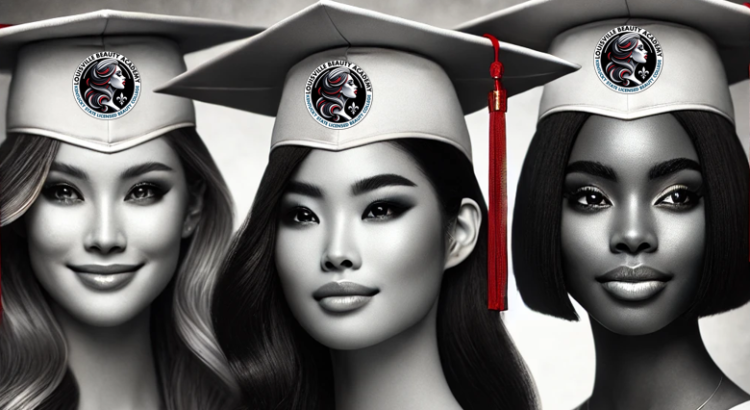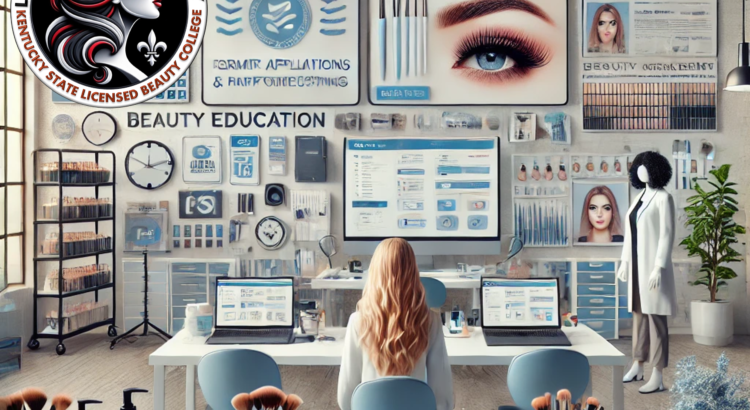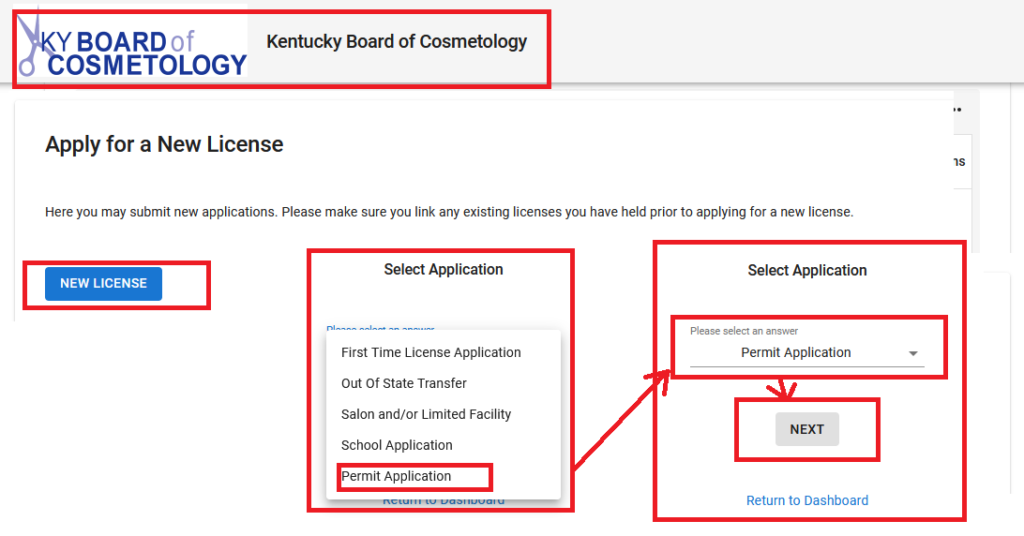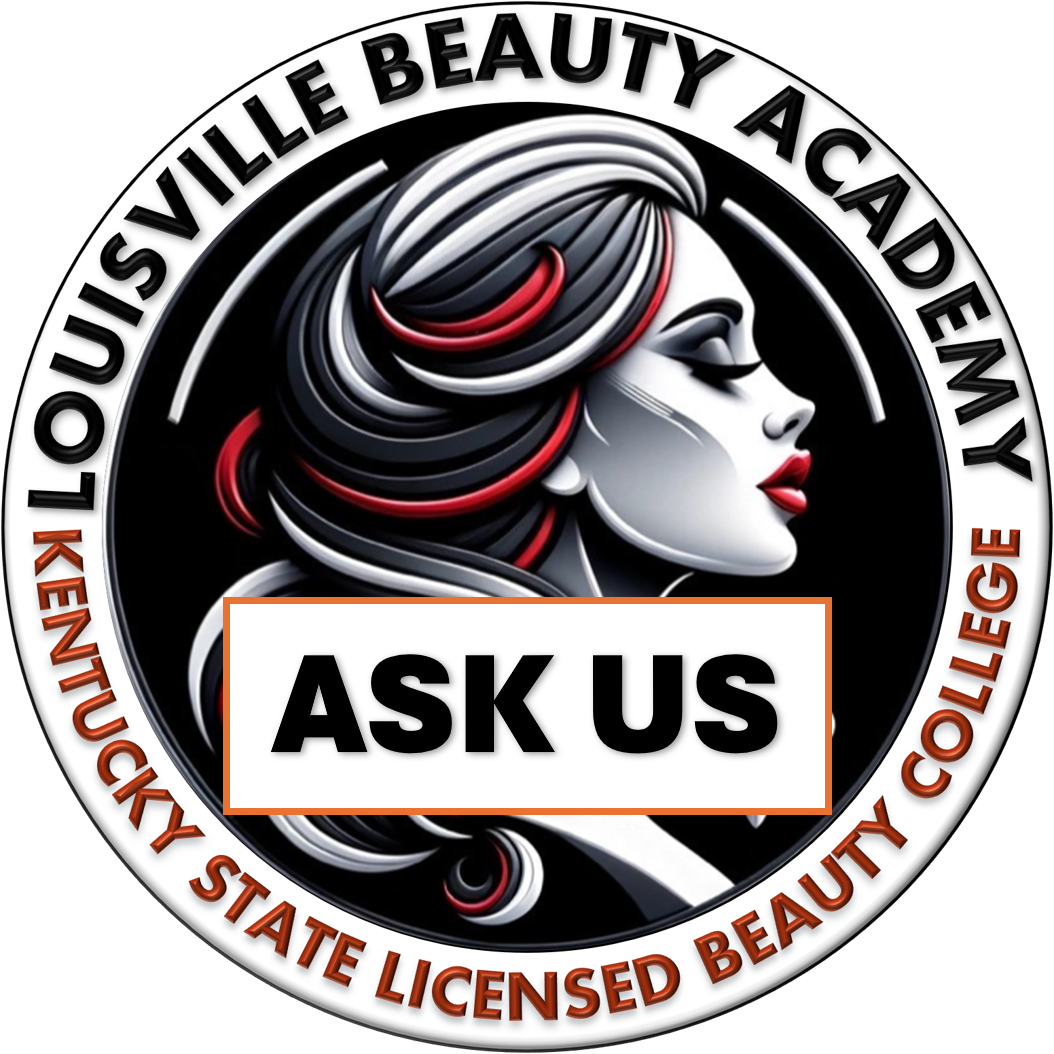Disclaimer (to be placed at the top or bottom of the publication):
Disclaimer: This research report is provided by Louisville Beauty Academy (LBA) as a public educational resource to inform policymakers, educators, and beauty professionals about ongoing trends in cosmetology regulation across the United States. While every effort has been made to ensure accuracy, the content reflects publicly available information as of May 14, 2025. LBA does not advocate for or against specific legislation but rather seeks to elevate the quality and accessibility of beauty education through informed discussion. This document does not constitute legal advice or official regulatory guidance.
Cosmetology Board Deregulation and Reform (2020–2025)
Summary of State Deregulation Legislation (2020–2025)
| State | Bill (Year) | Status | Key Provisions |
| Arizona | HB 2031 (2025) – Boards and Commissions; Repeal | Failed (House floor, Feb 26, 2025) | Sought to abolish the Barbering & Cosmetology Board, deregulating those professions entirely . Part of a broader “DOGE” initiative to repeal 8–10 boards as government waste. |
| Iowa | HF 711 (2025) – Barbering & Cosmetology Establishment Training | Enacted (Passed House 67–29; Senate 30–20 in May 2025) | Creates an “establishment training program” allowing salons/barbershops to employ unlicensed trainees for cosmetology/barber services, provided the salon registers a training program and informs clients of the trainee’s status . Simplifies school requirements and updates course of study. (Awaiting Governor’s signature as of May 2025.) |
| Minnesota | SF 2898 / HF 3202 (2020) – Hair/Makeup Artist Exemption | Enacted (Signed May 2020; eff. July 1, 2020) | Exempts hair styling and makeup services from licensure if practitioners complete a one-time 4-hour health and safety course . Allows unlicensed individuals to shampoo, blow-dry, and style hair (no cutting or chemicals) and apply makeup without a full cosmetology license . Enabled freelance artists to work at weddings, proms, etc., preserving an estimated 1,000 jobs . |
| Utah | SB 87 (2021) – Blow Dry Bar Licensure Exemption | Enacted (Signed March 2021) | Exempts “blow-dry styling” (washing, drying, styling hair with hot tools, with no cutting or chemical services) from cosmetology licensing . Unlicensed individuals must instead obtain a simplified hair safety permit after completing a brief safety course . A middle-ground approach to deregulate blow-dry bars while maintaining basic sanitation training. |
| Oklahoma | HB 2141 (2024) – Blow-Dry Styling Act | Enacted (Signed May 2024) | Creates a “blow-dry styling” carve-out from licensing . Individuals may shampoo, condition, dry, and style hair (including using hot tools and adding extensions) without a cosmetology license. Requires completion of instruction in general sanitation and safe use of styling devices, after which a certificate (hair safety license) is issued . |
| Texas | HB 1560 (2021) – TDLR Sunset Licensing Revisions | Enacted (Eff. Sept 2021) | Merged the Barbering & Cosmetology boards and license structures . Consolidated overlapping licenses (e.g. combined cosmetology and barber establishment licenses into one) . Eliminated certain licenses deemed unnecessary – e.g. barber/cosmetology instructor licenses and wig specialty licenses were repealed . Aimed to reduce duplication, streamline oversight, and lower barriers to entry in the industry . |
| SB 101 (2025) – Blow-Dry Licensing Repeal | Proposed (Filed Dec 2024; in committee) | Would remove the licensing requirement for blow-dry styling services in Texas . Permits anyone to wash and blow-dry hair without obtaining the 1,000-hour cosmetology license. Proponents argue blow-drying is a routine, low-risk service being over-regulated, and deregulation would cut unnecessary training costs for stylists . (Similar Texas bills in 2017 sought to cut full cosmetology hours from 1,500 to 1,000 .) | |
| California | SB 803 (2021) – Cosmetology Reform Act | Enacted (Chapter 648, signed Oct 2021) | Comprehensive reform via sunset review. Reduced training hours for a cosmetologist license from 1,600 to 1,000 hours (barber from 1,500 to 1,000) . Eliminated the practical exam requirement (written exam only) . Created a new 600-hour hairstylist license for non-chemical hair services (shampooing, styling, cutting without chemicals) . Expanded scope for estheticians (allowed lash/brow tints), and increased board size for broader industry representation . |
| AB 625 (2025) – Barbering & Cosmetology | Proposed (Amended in Assembly, hearing pending) | Would remove basic hair care and styling from the licensed scope of cosmetology/barbering. Specifically, it repeals the new hairstylist license and excludes practices like arranging, cleansing, shampooing, curling, and waving hair from the definitions of cosmetology/barbering . Unlicensed individuals could perform those services in establishments if they post notice of their unlicensed status to consumers . (Aimed at deregulating salon shampooers and blow-dry specialists; maintains licensure only for chemical services and cutting.) | |
| Pennsylvania | SB 1031 (2024) – Natural Hair Braiding Licensure Repeal | Enacted as Act 100 (Signed Oct 16, 2024) | Eliminated the cosmetology licensing requirement for natural hair braiders . Previously, PA required braiders to complete 300 hours of cosmetology school and obtain a license ; this act exempts hair braiding from the Cosmetology Law entirely. Braiders can now practice freely (no 300-hour training), aligning PA with 30+ other states that have deregulated braiding . The law recognizes braiding as a cultural practice and removes “unnecessary barriers” to entrepreneurship . |
| North Carolina | SB 656 (2025) – Cosmetic Art Deregulation | Proposed (Filed Mar 2025; in committee) | Omnibus deregulation bill to exempt three specialties from licensing: natural hair care (braiding, twisting, etc.), blow-dry styling, and makeup artistry . Converts the existing mandatory Natural Hair Care license (300-hour requirement) into an optional voluntary certificate . Practitioners of the exempt services could operate without a license if they complete a one-time 4-hour sanitation course approved by the Board . The bill also expands allowed settings for practice (e.g. permitting services in homes, events, nursing homes, etc., beyond licensed salons) . (Pending as of mid-2025.) |
| South Carolina | H 3483 (2025) – Blow-Dry Services Exemption | Proposed (Prefiled Dec 2024; in committee) | Defines “blow-dry styling” in state law and exempts persons providing blow-dry styling services from cosmetology/barber licensure . Blow-dry styling is limited to shampooing, conditioning, drying, and styling hair (including use of extensions and wigs) without cutting or chemical treatments . The bill amends SC’s barbering and cosmetology chapters to carve out blow-dry services as an unlicensed activity, recognizing it as distinct from full cosmetology. (Pending in 2025 session.) |
| Ohio | HB 238 (2024) – Cosmetology and Barber Board Reforms | Enacted (Signed Jan 2025) | A broad deregulation package arising from sunset review . Expanded the 450-hour “natural hair styling” license to include haircutting in its scope (creating one of the lowest-hour pathways to cut hair in the U.S.) . Added shampooing and rinsing to the list of exempt “boutique services”, meaning salon shampoo assistants no longer need any license (just simple registration) . Removed the competitor-affidavit requirement for boutique registrants (previously braiders, threaders, makeup artists had to obtain a signed attestation from a licensed cosmetologist) – now they can work by simply registering their contact info with the Board . Overall, the law repealed “scores of regulations” to eliminate red tape while keeping basic health/safety rules . |
Table: Key recent bills (2020–2025) impacting state cosmetology boards and licensing. Includes full board elimination attempts and partial deregulation measures like license exemptions for blow-dry bars, makeup artists, hair braiders, reduced training hour requirements, and board consolidations. Sources: state legislative records and industry reports .
State-by-State Developments (2020–2025)
Below we detail each state’s significant legislation regarding cosmetology board powers, licensing requirements, and deregulation efforts over the past five years:
Arizona:
Eliminating the Board – Failed Effort
Arizona saw an aggressive push to dissolve its Board of Barbers and Cosmetology in 2025. House Bill 2031, dubbed the “Arizona DOGE” bill, proposed repealing the state’s Barbering & Cosmetology Board entirely . This was part of a broader bill by Rep. Alex Kolodin (R) to eliminate eight regulatory boards deemed wasteful. HB 2031’s passage would have deregulated all barbering and cosmetology work – meaning no state license would be required to cut, color, or style hair in Arizona . Industry stakeholders sounded alarms that abolishing the board could endanger public health (due to lack of sanitation oversight) and lower professional standards . Bipartisan opposition in the legislature agreed the Cosmetology Board provides important safety oversight . In February 2025, HB 2031 failed on the House floor (42–17 vote) after several members of the sponsor’s own party joined Democrats to defeat it . Even an amendment to spare the Cosmetology Board (while still cutting other boards) was attempted, reflecting broad discomfort with fully deregulating the beauty industry . Takeaway: Arizona’s bold attempt at total cosmetology deregulation did not succeed, but it signaled a growing sentiment to scrutinize licensing boards’ necessity in the post-2024 political climate .
Arizona has also explored incremental reforms. In 2022, a separate bill (HB 2399) was introduced to reduce cosmetologist training hours from 1,500 to 1,000, and hairstylist license hours from 1,000 to 600 . That effort was in committee and aligned with national trends (similar to California’s reform) but ultimately did not cross the finish line. No major deregulation was enacted in AZ during 2020–2024, and the state’s cosmetology licensing framework remains intact as of 2025. However, the pressure to “cut red tape” in Arizona persists, evidenced by recurring bills and an executive mindset favoring smaller government oversight.
Iowa:
Salon “Training Program” and Licensing Rollbacks
Iowa moved toward partial deregulation by allowing supervised unlicensed practice. In 2025, Iowa’s legislature advanced House File 711, which creates an “establishment training program” pathway . Under HF 711, salons and barbershops can hire trainees who do not hold a license, as long as the business provides a formal in-house training program and informs clients that services are being performed by a trainee . The bill modernizes Iowa law to let cosmetology students earn practical experience on the job (with oversight) rather than exclusively in school. By mid-May 2025 HF 711 had passed both chambers with sizeable majorities, indicating broad support . (It is expected to be signed by the Governor.) This reform essentially introduces an apprenticeship-style model: it helps salons address workforce shortages and gives trainees a faster, cheaper route to learn the trade. Notably, Iowa’s move drew industry opposition – the Professional Beauty Association (PBA) warned that allowing unlicensed workers, even with disclosure, could undermine standards and consumer safety . Nonetheless, Iowa lawmakers favored the flexibility, suggesting that onerous schooling requirements can be relaxed if on-site training and transparency to customers are in place.
Iowa has also tackled other narrow deregulation issues recently. In 2022, the legislature approved SF 2119 to exempt eyebrow threading from cosmetology licensing (clarifying that threaders need not be licensed) . Another 2022 proposal, SF 2022, explicitly authorized licensed cosmetologists to make house calls and work in clients’ homes, reflecting pandemic-era shifts in service delivery . These measures – threading exemption, mobile practice, and now in 2025 the trainee program – illustrate Iowa’s step-by-step approach to easing cosmetology regulations without completely abolishing its Board. The Iowa Board of Cosmetology Arts & Sciences remains in place, but its role may shift as more alternative pathways (apprenticeships, specialty exemptions) are written into law.
Minnesota:
Exempting “Event Stylist” Services & Licensing Audit
Minnesota took a significant deregulation step in 2020 by carving out certain beauty services from licensing requirements. Recognizing that many people perform limited services like styling hair and doing makeup for events, lawmakers passed SF 2898/HF 3202. Effective July 1, 2020, a person who ONLY performs hairstyling and makeup application (no haircuts or chemical treatments) no longer needs a cosmetology license, provided they complete a one-time 4-hour safety course and carry proof of it . “Hairstyling” was explicitly defined as cleaning, drying, arranging, curling, and styling hair (including with extensions or wigs) without cutting or using chemicals . This reform liberated freelance makeup artists and “blow-dry bar” stylists from the burden of a 1,550-hour Minnesota cosmetology program for work that was seen as low-risk. It was celebrated by advocates and signed by Governor Tim Walz in May 2020 , immediately helping more than 1,000 workers to legally operate at weddings, proms, photoshoots, and even in clients’ homes . Other beauty treatments like facials, haircuts, or manicures still require a license, but the law marked a big change in Minnesota’s regulatory scope.
This legislative change was informed by a critical 2019–2020 audit of the Minnesota Board of Cosmetology. A report by the Legislative Auditor found that some licensing requirements were not clearly tied to health and safety. For example, at the time, Minnesota had no specialty license for simple hair services, and required full cosmetologist credentials even for just styling hair . The Legislature responded by authorizing the above exemption and even instructed the Board to develop a specialty “hairstyling” registration in the future . The audit also noted inefficiencies like overlapping salon license types and separate regulation of barbers vs. cosmetologists that “may not be the most efficient use of resources” . In short, Minnesota recognized that licensing needed right-sizing. Along with the new freelance stylist exemption, the state began considering an apprenticeship pathway and simpler licensing structure (bills in 2022 proposed a single “hair technician” license and even a total repeal of state licensing in favor of local control, though those did not pass) . The overall trend in Minnesota has been toward streamlining cosmetic services regulation – keeping critical sanitation rules, but removing needless hoops for limited-scope services.
Utah:
Blow‑Dry Bar Freedom with a “Hair Safety Permit”
Utah joined the movement to deregulate niche beauty services in 2021. Senate Bill 87 was signed into law, creating an exemption for “blow-dry bar” services. As of 2021, if a person confines their practice to washing, drying, and styling hair (with no cutting or chemical processing), Utah no longer requires a full cosmetology license . This allowed unlicensed stylists to work in blow-dry salons performing simple styling tasks. However, Utah’s law built in a safeguard: unlicensed blow-dry practitioners must obtain a “hair safety permit” . To get the permit, an individual completes a short program on hygiene, sanitation, and safe tool use – far less training than the 1,600 hours previously mandated for a cosmetology license, but still ensuring they know to disinfect brushes and handle hot irons properly . Utah’s approach was highlighted as a compromise by industry groups: not the “best case” for licensed professionals, but a reasonable middle ground that maintains public safety while reducing barriers to entry . The reform acknowledged that blow-drying is a service many consumers perform on themselves at home, and requiring extensive schooling for it imposed an unnecessary hurdle for entrepreneurs. Since SB 87’s enactment, Utah has a two-tier system: full licensure for comprehensive cosmetology, and a minimal permit for basic hair-styling only. This foreshadowed similar proposals in other states to liberate blow-dry services from heavy regulation.
Oklahoma:
Limited Deregulation for Blow‑Dry Services (2024)
Oklahoma legislators in 2024 also targeted blow-dry styling as an area for deregulation. House Bill 2141, signed into law, creates a statutory exemption for certain hair services. Under the new law, anyone can engage in shampooing, conditioning, brushing, and blow-drying hair, including the use of curling/flat irons and styling wigs or extensions, without a cosmetology license . This effectively legalizes “blow-dry bar” work by unlicensed individuals. However, similar to Utah, Oklahoma’s law isn’t a free-for-all – it mandates a basic instruction in sanitation and device use before someone can offer blow-dry services for a fee . In practice, an aspiring blow-dry stylist must complete a short course (covering how to sanitize tools, avoid scalp burns, etc.) and receive a certificate or permit from the state. Once they have that, they can work without the oversight of the Oklahoma State Board of Cosmetology for these limited services. Lawmakers crafted this as a “carve-out” within the Cosmetology Act to encourage job growth in salons focusing on blowouts and styling, while still “ensuring public safety” through minimal training . The bill was supported by those who see licensing as a barrier to quick, affordable services. By 2025, Oklahoma’s deregulation of blow-dry services was held up as a model in industry discussions – providing regulatory relief but not completely abandoning health standards .
(Oklahoma has also explored other cosmetic service exceptions. For example, a 2022 bill, HB 3195, aimed to exempt hair/MUAs working in film, TV, and theatrical productions from state cosmetology licensure . This acknowledged the unique context of entertainment industry stylists. Oklahoma’s incremental approach suggests a willingness to modernize cosmetology laws in specific areas.)
Texas:
Sunset Review Reforms and Blow‑Dry Bill
Texas undertook a major overhaul of its cosmetology and barbering regulations in 2021 through HB 1560, enacted as part of the Sunset review of the Texas Department of Licensing & Regulation (TDLR) . This law merged Texas’s Barber Board and Cosmetology Board into a single Barbering and Cosmetology program under TDLR , formally recognizing what had been two parallel licensing regimes as one. In doing so, Texas consolidated several license types: for instance, previously separate licenses for cosmetology salon vs. barbershop were unified into a single “establishment license” for any hair service business . License categories that were duplicative between barbering and cosmetology (such as certain types of hair weaving or skin care that both had) were combined . Importantly, HB 1560 also eliminated specific licenses deemed unnecessary – notably, it repealed the instructor license requirements for barber and cosmetology teachers, and abolished the specialty “wig cosmetologist” license . Lawmakers argued these additional licenses and hours did not protect the public and only made it harder for experienced professionals to advance . Supporters said the old dual-board system was inefficient, rooted more in historical gender distinctions than in modern safety needs . The 2021 reforms directed TDLR to implement changes by 2023, and by that time Texas had a single advisory board for both professions and streamlined rules. The training hour requirements in Texas remained 1,000 hours for cosmetologists, but the state clearly signaled a preference for reduced red tape and “no license for license’s sake.”
Building on that momentum, Texas in late 2024 saw the introduction of Senate Bill 101, which squarely targets the remaining licensure mandate for blow-dry styling. SB 101 (filed by Sen. Bob Hall) would explicitly remove “shampooing and blow-drying” from the cosmetology license requirements, allowing anyone to perform those services without any license . “There is nothing dangerous… it’s simply washing hair and blow drying it,” Sen. Hall argued, calling this regulation an example of costly government overreach . The bill arrived amid anecdotal reports that Texas cosmetology law still technically required a license even just to shampoo hair in a salon, something critics find absurd. (In fact, prior to 2015, Texas had a separate 150-hour “shampoo apprentice” permit – now abolished.) While SB 101 hadn’t passed as of 2025, it reflects Texas’s continuing push to lighten licensing burdens. A similar proposal in the 2017 session – to cut the full cosmetology program from 1,500 to 1,000 hours – nearly succeeded , showing legislative appetite for reform. If Texas enacts the blow-dry exemption, it would join the ranks of states carving out that niche. Meanwhile, TDLR’s existing rules already allow mobile cosmetology units and off-salon services, and exempt certain minor services (like braiding was deregulated in Texas back in the early 2010s). The trajectory in Texas is clear: fewer bureaucratic barriers in the beauty industry, balanced by TDLR’s continued oversight of core health and safety practices.
California:
Licensing Reform and New License Categories
California’s approach to cosmetology reform has been less about deregulation and more about modernization and right-sizing regulation. In 2021, California passed SB 803, a comprehensive update to the Barbering & Cosmetology Act . This law made California one of the states with the fewest required training hours for cosmetologists, cutting the mandate from 1,600 hours down to 1,000 hours for cosmetology and barbering programs . It also eliminated the state’s practical examination for licensing (formerly, students had to pass a hands-on practical test; now they need only a written exam) . The practical exam was viewed as an onerous hurdle that did not demonstrably improve consumer safety, so its removal was a win for efficiency (applicants can get licensed faster now) . To address evolving industry roles, SB 803 created a new 600-hour “hairstylist” license – a limited license covering hair services that exclude chemicals . This caters to those who only want to cut, shampoo, and style hair without learning the full cosmetology curriculum (which includes nails, skin, and chemical processes). In essence, California acknowledged that someone who just wants to be a haircut and styling specialist shouldn’t need 1,600 hours of training in unrelated topics; a shorter program would suffice . SB 803 also slightly expanded estheticians’ scope (allowing them to do lash and brow tinting/perm) and increased the size of the Board itself from 9 to 13 members to include more sector representation . These changes took effect Jan 1, 2022 and were lauded as making California a leader in licensing reform (the Governor’s signing message emphasized reducing student debt and facilitating interstate license mobility via a new endorsement process ).
By 2025, California is considering going even further for certain services. AB 625, introduced in 2025 by Assembly Member Stephanie Nguyen, proposes to deregulate simple hair care practices by removing them entirely from the Board’s jurisdiction . The bill would strike from the legal definitions of cosmetology/barbering all acts of “arranging, beautifying, cleansing, curling, dressing, shampooing, or waving” hair – effectively saying those activities do not require a license . If passed, a person could perform a shampoo and set or a basic blowout in a salon without a license, so long as they conspicuously notify customers that they are unlicensed . (Notably, cutting hair and applying chemicals/color would still be restricted to licensed professionals.) AB 625 also would repeal the 600-hour hairstylist license that California just created – the idea being that even 600 hours of schooling might be an unnecessary barrier for someone only doing non-chemical styling. Instead, those individuals would need no formal license at all. This proposal has sparked debate: supporters argue it frees up entry-level jobs (shampoo assistants, etc.) and aligns with what states like Minnesota and Utah have done, while opponents (including some cosmetology schools and the state Board) worry it rolls back consumer protections too far. As of May 2025, AB 625 had been amended and was in committee (its first hearing was postponed) . It remains to be seen if California will enact this partial deregulation. Regardless, California’s trend is to lower barriers (fewer hours, no practical test) while still maintaining one of the nation’s largest regulatory boards overseeing health and sanitation in the beauty industry.
Pennsylvania:
Freeing Natural Hair Braiders
Pennsylvania in 2024 finally addressed a long-standing concern in the African-American and natural hair care community by eliminating onerous license requirements for hair braiders. Since 2006, PA had required a “Natural Hair Braider” license (300 hours of cosmetology school and a board exam) for anyone braiding, locking, or twisting hair for pay . This was widely criticized as excessive – braiding is a traditional skill, and cosmetology programs often don’t even teach the techniques. State Senator Anthony Williams championed SB 1031 (2024) to remove these prerequisites. The bill passed the Senate 28–21 in June 2024 and by October 2024 its language was folded into Act 100, which Governor Josh Shapiro signed into law . Effective immediately, natural hair braiding is no longer part of PA’s Cosmetology Law – meaning braiders do not need any license or hours of schooling to practice . Pennsylvania thus joined the majority of states that have exempted hair braiding from cosmetology oversight (as of 2024, over 30 states had done so) .
Proponents framed this as a win for cultural tradition and entrepreneurship: braiding skills are often passed down through families and communities, and requiring braiders to spend time and money on unrelated cosmetology training was seen as a barrier that disproportionately affected women of color . Now, a person can open a braiding business in Pennsylvania without navigating the licensing bureaucracy. The new law does retain an optional avenue: braiders can still choose to get a license or certification if they want (for instance, to learn advanced sanitation or expand services), but it’s not mandatory. The Cosmetology Board lost some regulatory turf as a result – roughly 2,000 braiders statewide were previously licensed or constrained by the old system. Industry reaction in PA was generally positive among braiders and civil rights advocates, while some cosmetologists were concerned about a slippery slope (would other license types be next?). Indeed, supporters like Sen. Williams hinted this move was about “removing unnecessary barriers” broadly . The braider licensure repeal was relatively non-controversial in the legislature compared to other deregulation fights, perhaps because braiding has a clear safety record and strong cultural importance. It highlights one of the common targets of licensing reform – niche services where standard cosmetology education is seen as overkill.
North Carolina:
Broad Deregulation Bill for Hair and Makeup (2025)
In 2025, North Carolina lawmakers introduced a sweeping proposal to deregulate several corners of the beauty industry. Senate Bill 656 (“Cosmetic Art Deregulation”) is a multi-part reform that would exempt three categories of services from licensure: natural hair care, blow-dry styling, and makeup artistry . Currently, NC has separate licenses for cosmetologists, estheticians, and a Natural Hair Care Specialist license (which requires 300 hours of training) for braiding and similar services. SB 656 would make the natural hair care license voluntary – anyone could practice braiding/twisting without a license, though they could apply for a Board-issued “Certified Natural Hair Care Specialist” credential if they meet the training (essentially converting the license into a title one can earn, but not a legal prerequisite) . Likewise, performing make-up application or basic hairstyling (washing, blowing, curling, arranging hair without cuts/chemicals) would no longer require a license at all .
To address safety concerns, the bill mandates that practitioners of these now-exempt services complete a one-time 4-hour sanitation course and register with the Board – similar to Minnesota’s approach. SB 656 also updates NC law to allow these services in more environments: it expands authorized practice settings so that licensed or unlicensed practitioners can offer services in places like clients’ homes, wedding venues, photography studios, nursing homes, etc., without running afoul of the “licensed salon” requirement . This reflects a practical adaptation to consumer demand for on-site services. The bill has bipartisan sponsorship (it’s co-sponsored by both Republican and Democratic senators) , showing a coalition in favor of licensing relief. However, it has sparked debate. Schools and some licensed professionals in NC worry about competition from unlicensed individuals and potential declines in quality or accountability. The state Board of Cosmetic Art Examiners has raised questions about enforcement if a large segment of practitioners operate outside licensure. On the other hand, advocates (including some lawmakers and the Institute for Justice) argue this law will create jobs and reduce racial disparities, noting that braiding in particular has been subject to burdens that don’t match its risks .
As of spring 2025, SB 656 is still in committee, and its fate is uncertain. If enacted, North Carolina would leapfrog many states in liberalizing cosmetology laws – essentially shifting to voluntary certification for hair braiders and deregulating several cosmetic arts (with minimal training requirements). This “test case” could influence Southern states especially, as NC would be one of the first in the region to free braiders (neighboring SC and GA, for example, still license braiders to some extent). Overall, SB 656 encapsulates the broader trend: targeting specific low-risk services for deregulation, rather than tearing down the entire licensing structure.
South Carolina:
Pending Exemption for Shampoo/Blow-Dry Services
South Carolina is another state moving to trim its cosmetology regulations in line with the blow-dry bar trend. House Bill 3483, prefiled in late 2024 for the 2025 session, would exempt “blow-dry styling services” from the Board of Cosmetology’s licensing requirements . The bill carefully defines blow-dry styling as shampooing, conditioning, drying, and styling hair using mechanical devices, plus adding extensions or hairpieces, but explicitly excludes any cutting or chemical services (like coloring, relaxing, or perming) . It then amends the law so that anyone providing only blow-dry styling does not need a cosmetology or barber license . Essentially, if you’re just doing a shampoo and blowout, you wouldn’t be subject to Board regulation. The bill also tweaks the Barber Board statute to clarify that a person doing blow-dry styling without other barbering services is not under the Barber Board either .
At present, SC law requires a cosmetology license (1,500 hours of training) for even basic hair services. If H.3483 passes, it would remove a chunk of those services from licensure – a significant change. The bill is before the House Medical, Military, Public and Municipal Affairs Committee as of early 2025 . It has support from those who run blow-dry salons and believe the current licensing rules inflate costs. However, licensed cosmetologists in SC have voiced opposition, worrying that deregulation could lead to untrained individuals causing harm (burning clients with hot tools or spreading scalp conditions due to poor sanitation). The bill tries to preempt some of these arguments by noting that blow-dry styling “is distinct from the practice of cosmetology” and therefore shouldn’t be conflated with higher-risk chemical or cutting services .
This push in South Carolina aligns with simultaneous efforts in other states (NC, TX, CA, etc. in 2025) targeting the same issue. It demonstrates a regional shift in attitudes – even in states with traditionally strict licensing, legislators are asking: Does someone really need a full cosmetology license just to blow-dry hair? South Carolina appears poised to answer “no,” pending the outcome of H.3483. If adopted, the Cosmetology Board would retain authority over haircuts, chemical treatments, and other cosmetology acts, but lose jurisdiction over simple hair styling.
(South Carolina previously deregulated natural hair braiders in 2018 by removing a registration requirement, so H.3483 is part of a continuing pattern of peeling back requirements for specific services.)
Ohio:
Comprehensive Deregulation via Sunset Review
Ohio embarked on a broad-based overhaul of its cosmetology laws in 2024, using the state’s sunset review process to bundle multiple reforms into House Bill 238 . Governor Mike DeWine signed this bill in January 2025, and it brings several notable changes:
- Natural Hair Styling License Reform: Ohio already had a 450-hour natural hair stylist license (for braiding and similar services). HB 238 expanded the scope of that 450-hour license to include haircutting . This means someone can become a fully qualified hair cutter with only 450 hours of training (far less than the standard cosmetology program) – making it one of the lowest-hour hair cutting credentials in the U.S. . Lawmakers intended this to increase competition and make it easier to open simple hair salons focusing on basic cuts and styles.
- “Boutique Services” Expansion: Ohio uses the term “boutique services registration” for very limited tasks like braiding, threading, and makeup, which require registration but not a full license. HB 238 added shampooing and conditioning to the boutique category . Practically, this legalizes standalone shampoo assistants: a person can be hired to shampoo and rinse clients’ hair without needing to be a licensed cosmetologist (they would just register with the Board). This addressed a point of contention – many argued that requiring a license to simply shampoo hair in a salon was unnecessary.
- Removal of Competitor Affidavit: Previously, Ohio’s boutique-service applicants (braiders, threaders, etc.) had to submit an affidavit signed by a licensed cosmetologist or barber attesting to their competency . Critics called this a protectionist measure – essentially forcing new entrants to get permission from existing license-holders (often competitors). HB 238 eliminated the affidavit requirement . Now, boutique service providers only need to register their contact info with the Board (so the Board knows who and where they are) and can then start working . No sign-off from established salons required.
- Streamlined Apprenticeships and Credit for Inmates: Additionally, the law made it easier for individuals to get credit toward barber/cosmetology licenses through apprenticeships and prison vocational programs, as part of a workforce reentry effort . And it barred the Cosmetology Board from denying licenses due to criminal convictions older than 3 years (to reduce barriers for ex-offenders) .
The cumulative effect of HB 238 is a significant deregulatory sweep. The Institute for Justice praised it, noting that Ohio “repealed scores of regulations… far beyond what consumers needed” by leveraging an excellent sunset review process . Indeed, Ohio’s biennial budget review was used to question every cosmetology rule’s necessity. The changes sailed through with bipartisan support (the final bill had overwhelming votes, indicating consensus that these were common-sense trims). Ohio’s State Cosmetology and Barber Board remains intact, but its rules are now slimmed down. The Board must accommodate a new reality where, for example, someone with a basic “hair styling” license can cut hair with minimal hours, and whole categories of workers (braiders, threaders, makeup artists, shampooers) are simply outside the licensed regime aside from a registration. Ohio’s reforms also underscore a sunset review trend: rather than wait for lawsuits or crises, legislatures are proactively reviewing licensing boards to eliminate what they view as “red tape” .
Early feedback from the industry is mixed. Many cosmetologists in Ohio support the changes because they could reduce bottlenecks in salons (filling assistant roles more easily) and broaden the talent pipeline. Others are wary that allowing hair cutting with 450 hours might undercut professionals who underwent 1,500 hours of training. Time will tell if service quality or safety is affected – proponents point out that states with even lower hour requirements haven’t seen rampant issues, and that market forces will ensure even those with less training will seek to perfect their skills to attract clients . As of 2025, Ohio stands out for its comprehensive approach, tackling everything from braiding to criminal justice within one reform package.
National Trends and Themes (2020–2025)
Over the past five years, a clear national theme of cosmetology deregulation has emerged: state legislatures are increasingly willing to re-examine and roll back licensing requirements for the beauty industry. While no state completely abolished its cosmetology board (the lone attempt in Arizona failed ), partial deregulation measures have gained traction across red and blue states alike. Here are the key trends and the common arguments shaping this movement:
- Targeted Deregulation of Low-Risk Services: A significant trend is exempting specific “niche” or low-risk beauty services from licensing. Services such as natural hair braiding, blow-dry hairstyling, shampooing, makeup application, threading, and eyelash extensions have been peeled away from cosmetology board oversight in many states. Lawmakers reason that these tasks do not involve chemicals or invasive procedures and can be learned through brief training, so requiring hundreds or thousands of school hours is unjustified . By 2025, for example, over half of states have no license requirement for braiders, and a growing handful (5–6 states) explicitly exempt blow-dry styling and simple makeup artistry . Georgia (HB 1231 in 2022) and New Hampshire (HB 1171 in 2022) introduced bills to remove blow-dry, braiding, makeup, etc. from their cosmetology definitions . California’s AB 625 and North Carolina’s SB 656 in 2025 similarly seek to carve out those activities . Even where not yet passed, this pattern shows a mindset shift: state governments are defining the scope of cosmetology more narrowly, focusing on higher-risk services (chemical treatments, cutting, etc.) and letting simple beauty services be performed with little or no regulation.
- Reducing Hour Requirements for Full Licenses: Many states have moved to lower the required training hours for core cosmetology or barber licenses, addressing concerns that the U.S. had some of the longest cosmetology programs in the world. California (2021) cutting to 1,000 hours , Virginia (2022–24) moving from 1,500 to 1,000 hours (via Board regulation) , New York (2022) considering dropping its 1,000-hour requirement even lower, and states like Massachusetts (which was at 1,000) contemplating 1,000→900, are examples. In fact, by 2023 around 15 states had 1,000-hour cosmetology programs or were enacting legislation to get there . Reducing hours is seen as a way to lower tuition costs and student debt for cosmetology school, and to get professionals into the workforce faster . Proponents note that the extra 500 hours (for instance) beyond 1,000 may be spent on repetition or on services a graduate might never use in practice. Governors and legislators have explicitly linked hour reductions to economic opportunity: Virginia’s governor touted that shorter programs mean less debt and quicker earning potential for graduates . Opponents (often cosmetology schools and some salon owners) worry that shorter training could leave new licensees less prepared, or create interstate portability issues if other states still mandate more hours . However, the general momentum has been towards shorter, more focused curricula, sometimes coupled with simplified licenses (e.g., separate licenses for hair-only or nails-only with fewer hours). New Jersey and Michigan have debated similar reductions, and Ohio’s new 450-hour stylist pathway is an extreme example of how far the envelope is being pushed .
- Apprenticeships and On-the-Job Training Alternatives: Deregulation efforts also promote apprenticeship models or experiential learning in lieu of formal schooling. States like West Virginia (2021) established a cosmetology apprenticeship option – allowing a portion of training hours to be earned through salon work under a mentor, rather than all in the classroom . Iowa’s 2025 HF 711 goes a step further to let salons directly train beginners and put them to work with client consent . These measures respond to criticism that cosmetology programs can be expensive and have high dropout rates (fewer than 1/3 of cosmetology students graduate on time nationally) . By integrating work experience, proponents claim students can “earn while they learn” and salons can fill staffing needs. The flip side concern is ensuring consistent training quality and preventing exploitation of trainees. Most states implementing apprenticeships require registration of the program and still mandate the trainee pass the standard board exams in the end. Nonetheless, the rigidity of the school-or-nothing model is softening. Cosmetology is aligning more with trades like plumbing or electric where multiple pathways (school or apprenticeship) exist to licensure.
- Merging and Streamlining Boards: Some deregulation initiatives focus on the regulatory structure itself, not just license criteria. Merging separate boards for related professions has been one tactic. For example, Texas’s HB 1560 (2021) formally merged the Barber and Cosmetology boards (which were already under one agency) into one unified board and combined their administrative rules . Ohio (2018) had earlier merged its barber board into the cosmetology board , and other states like Georgia and Louisiana have done or considered the same. The rationale is to eliminate duplication (why have two sets of inspectors, two sets of exams, etc., for hair cutting that is very similar whether by a “barber” or “cosmetologist”). Consolidation can cut costs and reduce confusion for licensees. Another structural change is moving boards under umbrella agencies or applying “sunset reviews” to them to ensure they aren’t perpetuating unnecessary rules. Ohio’s sunset review of its Cosmetology Board in 2024 is a prime example that resulted in HB 238’s sweeping changes . Arizona’s DOGE bill was a radical version, aiming to eliminate boards deemed non-essential . While that didn’t pass, Arizona did enact a law a few years prior (2019) that allows individuals to ask the legislature for a review of any occupational regulation they feel is overly burdensome (a nod to potentially delicensing certain activities). We also see interstate compacts emerging (the Cosmetology Licensure Compact was introduced in 2023 and by 2024 Virginia and Colorado passed bills to join it ). The compact doesn’t deregulate per se, but it facilitates license mobility – a response to pressure for licensing to be less restrictive when professionals move across state lines (especially relevant for military spouses). In sum, the governance trend is toward greater efficiency and flexibility: fewer boards, broader scopes covering multiple professions, and collaboration across states to reduce redundant barriers.
- Common Justifications & Criticisms: Legislators pushing these reforms often cite economic liberty and job growth. They argue that onerous cosmetology regulations shut out aspiring workers, especially those unable to afford costly schooling or who only want to perform a narrow set of services . During debates, one hears that licensing can be a “barrier to entry” or a form of unnecessary “red tape” that doesn’t correspond to real health risks . For instance, blow-dry bars are said to perform the same basic tasks people do at home, so requiring a license is seen as protectionism rather than consumer protection . Natural hair braiding is highlighted as a cultural practice that was unfairly subjected to licensing due to historical bias, with no safety justification . Lawmakers also point to inconsistencies: why do some states allow makeup artists to work unlicensed (e.g., freelance bridal makeup) while others arrest unlicensed MUAs? This patchwork has fueled a race by reformers to bring their states in line with the more permissive ones. They frequently mention, “X number of states already don’t license this, and they haven’t seen problems,” which is a compelling argument in hearings. For example, Pennsylvania noted that over 30 states had exempted braiders, and it was time PA did the same . Virginia’s regulators cited that 15+ states have 1,000-hour cosmetology, implying that 1,500 was no longer necessary .
On the other side, boards, schools, and many established professionals defend the licensing system. The Professional Beauty Association (PBA) and state beauty school associations have actively lobbied against deregulation bills. They argue that licenses ensure consistent training in sanitation, chemical handling, and infection control, which protect the public from disease or injury . PBA representatives often testify that lowering standards would be “disastrous” for consumer safety and the professionalism of the industry . They raise concerns about unlicensed operators lacking knowledge of hygiene (e.g. disinfecting tools to prevent fungal infections or lice transmission) and technical skills (e.g. a poorly trained person could burn a client’s scalp with a flat iron or cause hair loss with improper extensions ). Another argument is that deregulation can hurt small salon businesses: if unlicensed individuals undercut prices (by avoiding licensing costs), it could create unfair competition and liability issues for salons . Some licensed practitioners feel that deregulation devalues their education and license – they invested time and money to become licensed and fear their advantage erodes if the market floods with unlicensed (and potentially lower-priced) competitors . For example, when Virginia contemplated reducing hours, many cosmetology students and instructors protested, saying it might diminish their skill level or make their license less portable to other states with higher hour requirements .
- Notable Stakeholder Reactions: In many states, beauty schools have been vocal opponents of hour reductions and exemptions – understandably, since fewer required hours or deregulated niches can translate to decreased enrollment. A vivid scene occurred in Virginia, where beauty school owners rallied students to speak out against the 1,000-hour proposal, worried it would strain school finances and accreditation . Conversely, free-market think tanks and legal foundations like the Institute for Justice (IJ) have been leading advocates for deregulation. IJ has backed lawsuits on behalf of braiders in several states and runs campaigns like “Beauty Not Barriers” to support bills that open up the beauty industry . They often supply expert witnesses or research (for example, IJ testimony in Ohio’s hearings emphasized that less restrictive alternatives could still protect consumers ). State executives have sometimes joined the cause: governors in states like Arizona, Ohio, and Virginia have publicly supported licensing reform as part of broader workforce development agendas. In Ohio, the governor’s signing of HB 238 was applauded as removing burdens “beyond what consumers needed” . In Arizona, Gov. Doug Ducey in prior years championed universal recognition of out-of-state licenses and was sympathetic to sunseting some licenses, setting a tone that influenced legislative efforts like the 2025 DOGE bill (though Ducey was out of office by then). On the legislative side, these issues do not always break along party lines: while many deregulation bills are sponsored by Republicans pushing smaller-government ideals, they often pick up Democrats who see the changes as helping minority communities and small businesses. North Carolina’s bipartisan SB 656 is a case in point , and the braid deregulation efforts have had broad coalition support in multiple states (from libertarians to urban Democrats).
In summary, from 2020 to 2025 the U.S. has seen a wave of occupational licensing reform focused on the cosmetology field. The momentum is generally toward pruning the scope of cosmetology boards – keeping core health and safety regulations, but eliminating requirements that are viewed as arbitrary or protectionist. Common targets are rules for services that can be safely offered with minimal training (blow-drying, braiding, etc.), and excessive education hours or red tape in obtaining licenses. Deregulation is happening incrementally rather than via wholesale abolition of boards. As we’ve seen, attempts to completely dismantle regulatory boards (e.g., Arizona) face steep opposition and have failed due to concerns about consumer harm and industry disruption . However, partial reforms are often successful when framed as reasonable updates: they have passed in conservative states like Utah and Oklahoma as well as more liberal ones like Minnesota and California. There is a clear national dialogue now between those championing “economic liberty” in beauty professions and those warning of “race to the bottom” consequences. This dialogue has even reached Congress (though federal action is unlikely, as cosmetology licensing is state-controlled). As of 2025, the deregulation momentum is still strong – dozens of bills are being introduced each year in state capitals to tweak or trim cosmetology laws. The beauty industry, its regulatory boards, and consumers are all watching closely to see how these changes impact service quality, pricing, safety, and professional livelihoods. The experiences of states leading in deregulation will likely inform the next wave of debates in those states still holding onto more stringent cosmetology regulations.
